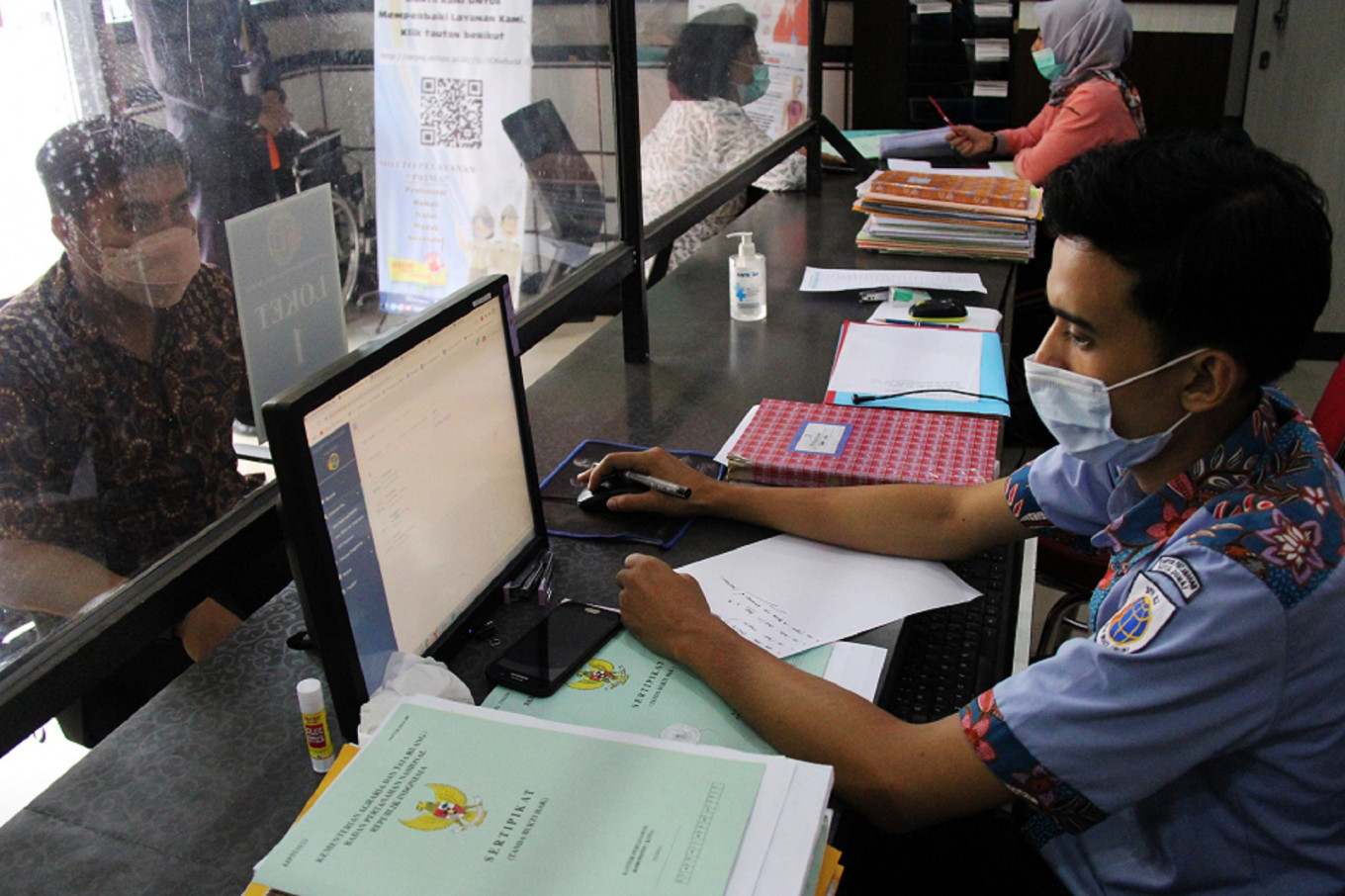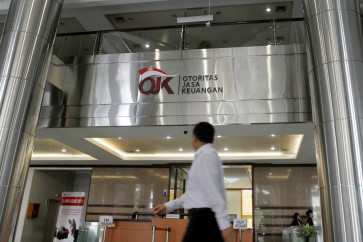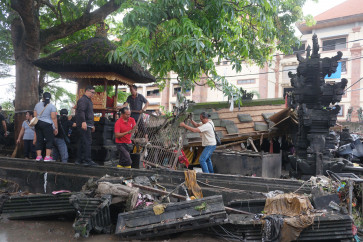Popular Reads
Top Results
Can't find what you're looking for?
View all search resultsPopular Reads
Top Results
Can't find what you're looking for?
View all search resultsMinistry launches electronic land certificates
All land should have been registered before digitalization: Consortium
Change text size
Gift Premium Articles
to Anyone
T
he Agrarian and Spatial Planning Ministry is introducing an electronic land certificate as part of an effort to simplify the land registry process and curb land cartels. However, the plan has drawn concern from critics about lingering tenurial conflicts and data security.
Minister Sofyan Djalil has recently issued a ministerial regulation stipulating that the ministry would issue electronic certificates for plots of land that were already registered as well as newly registered land. The electronic certificate would have the same legal standing as the printed one, as the former would be issued to replace the latter.
The ministry’s director for land registry management Dwi Purnama suggested in a statement that the electronic land certification would increase efficiency in the land registration process, while also decreasing the potential of land conflicts.
Separately, Sofyan claimed that that the electronic certificates would also help authorities to curb land cartels that often drove investors away from the country and harmed landowners.
Recently, former deputy foreign minister Dino Patti Djalal tweeted that her mother had become a victim of a land cartel, as the name on the certificate for a house she owned was changed without her authorization.
Dino alleged that the perpetrator forged an identity card and cooperated with a broker to change the house's ownership at the State Land Agency (BPN). He urged law enforcers to arrest the perpetrators and the land agency to prevent such incidents from happening in the future.
“Therefore, it’s important for us to digitize our system,” Sofyan said in a statement.
Ministry spokesperson Yulia Jaya Nirmawati said the government would not require all landowners to replace their certificate with the electronic one immediately. “The printed certificates will also still be valid as long as they haven’t been replaced with the electronic one.”
The ministry is currently preparing to launch the pilot project for the electronic certificate at five BPN offices in Jakarta as well as two in Surabaya, East Java. The pilot project will focus on the issuance of electronic certificates for land owned by the state as well as state-owned enterprises.
The Agrarian Reform Consortium (KPA) slammed the plan, saying solving lingering agrarian conflicts should be the priority rather than pushing to replace land certificates with digital ones.
KPA secretary-general Dewi Kartika said the government should have prioritized registering all plots of land before digitizing the certificates. According to data from the ministry, only 82 million plots of land out of 126 million had been registered last year.
“Registering them will complete the government data set that will be the basis for national development and agrarian policy, including the land reform,” Dewi said.
She added that electronic land certificates could potentially worsen agrarian conflicts, especially in areas with ongoing tenurial conflicts.
The consortium recorded a total of 241 cases of agrarian conflict throughout 2020, affecting around 135,000 families in 259 villages or subdistricts. Most of the conflicts, 69 percent, occurred in the plantation and forestry sector.
Dewi went on to say that the electronic certificate should only serve as a supplement to the original printed land certificate that landowners already had.
Rikardo Simarmata, an agrarian law expert from Gadjah Mada University in Yogyakarta, echoed Dewi’s statement, saying digitizing land certificates should not be prioritized over other agrarian reform issues.
While the ministry was preparing the implementation of the digital certificate in stages, he said it should also improve its bureaucracy, so people would trust such initiatives more.
The Southeast Asia Freedom of Expression Network (SAFEnet) raised concerns about data security if land certificates are converted into digital ones.
SAFEnet cybersecurity division head Abul Hasan Banimal said it was a sensitive issue because most Indonesians had become warier about the security of the personal data held by authorities.
He highlighted that most Indonesians’ personal data was scattered among government institutions and corporations.
“People could easily get doxed if their identity card information was compromised, let alone leaked [from the government or corporation’s database],” he said.
Responding to such concerns about security, Minister Sofyan said the ministry would work to fix its digital infrastructure with the Communication and Information Ministry and the National Cyber and Encryption Agency (BSSN).
Moreover, the ministry’s spokesperson Yulia said the ministry would ensure the security of such data by installing encryption at its data center, using digital signatures on the electronic certificates as well as two-factor authentication to ensure that only the legal landowner can access the files.










